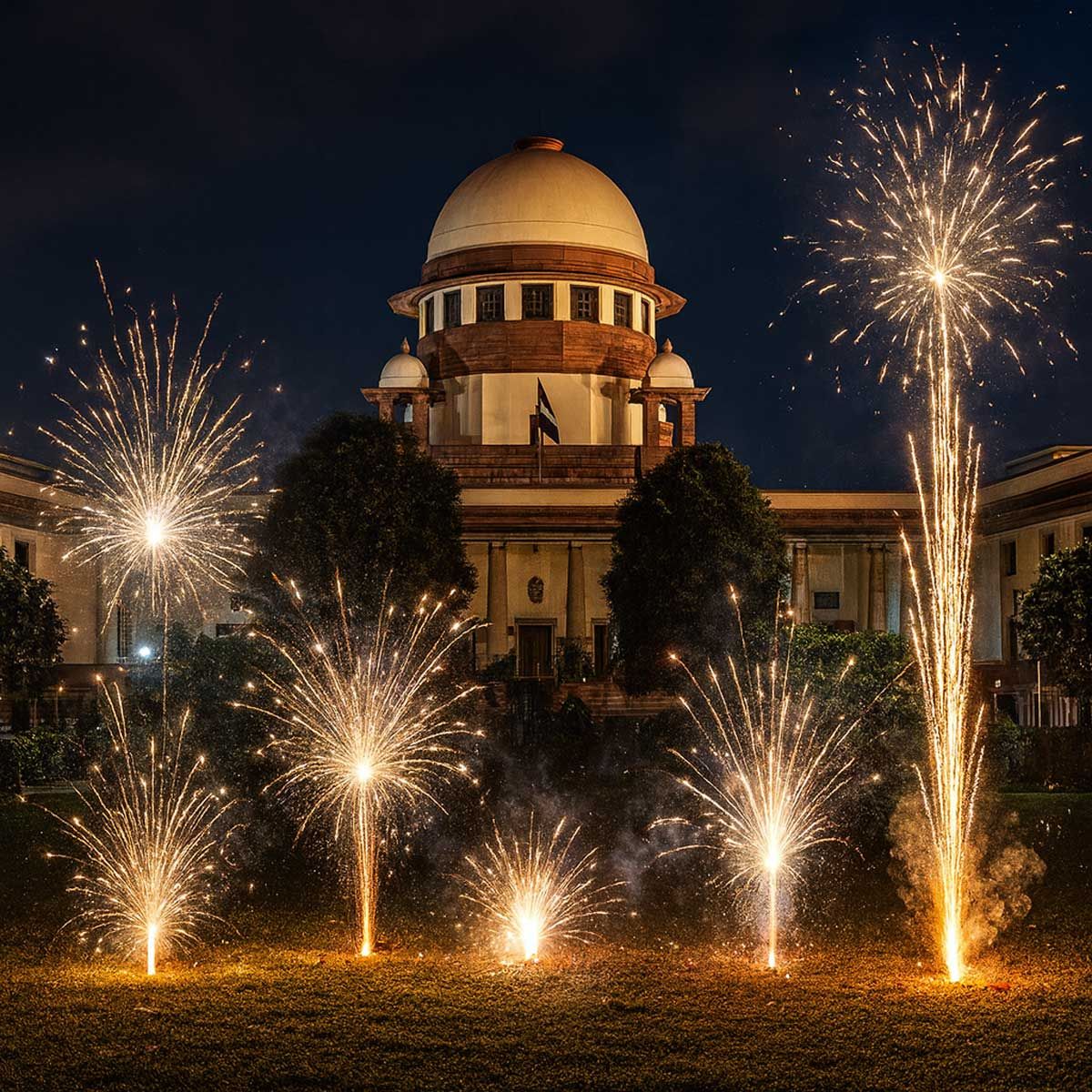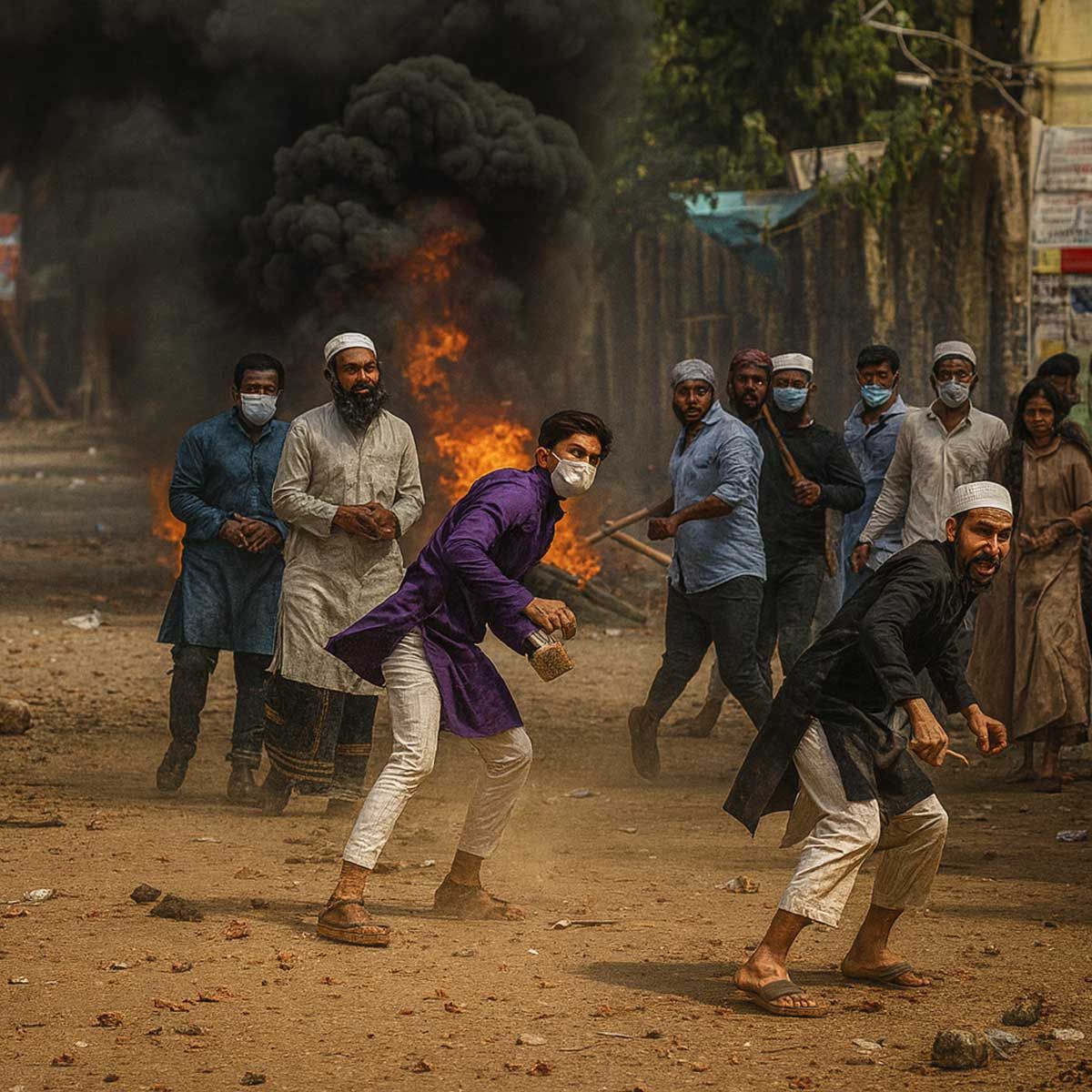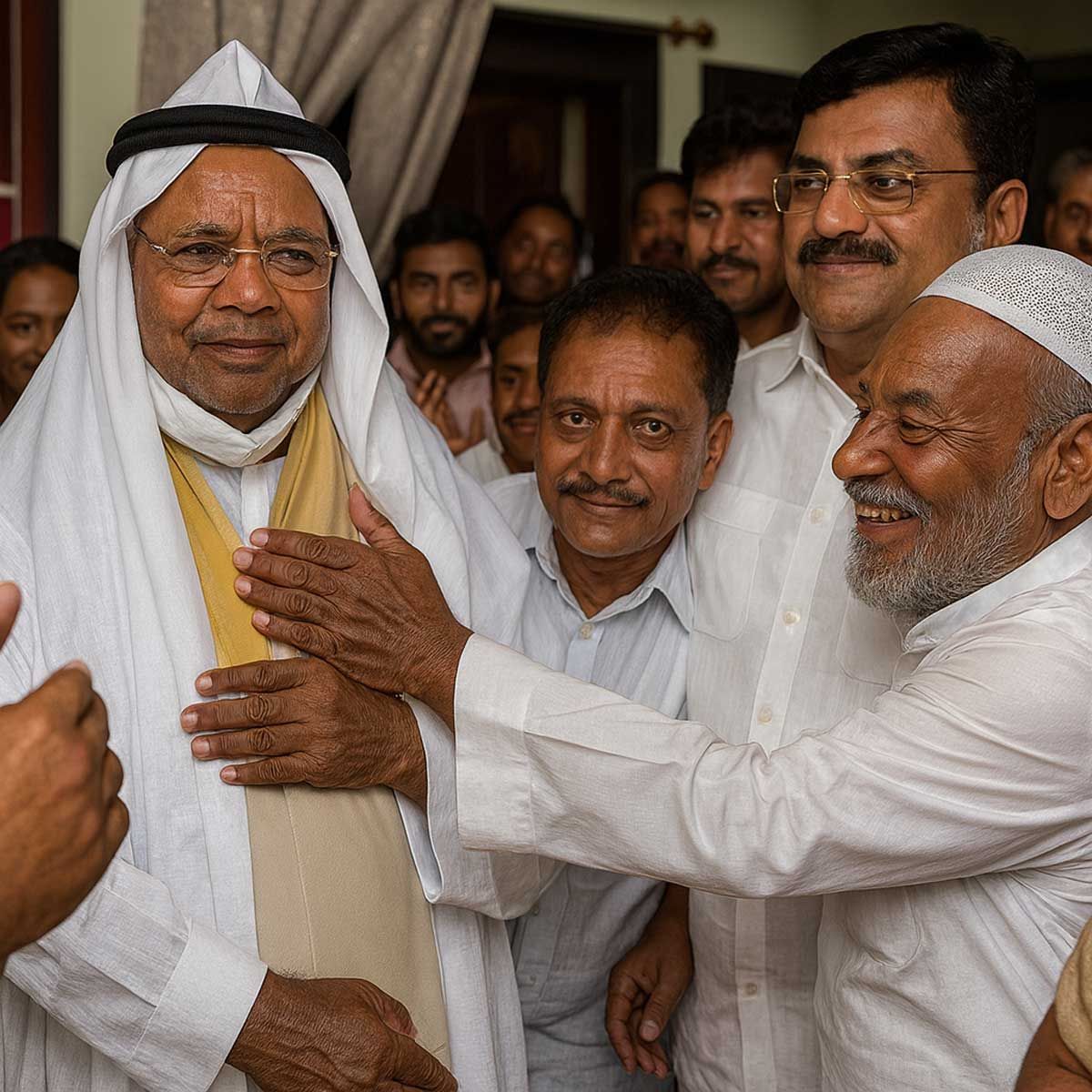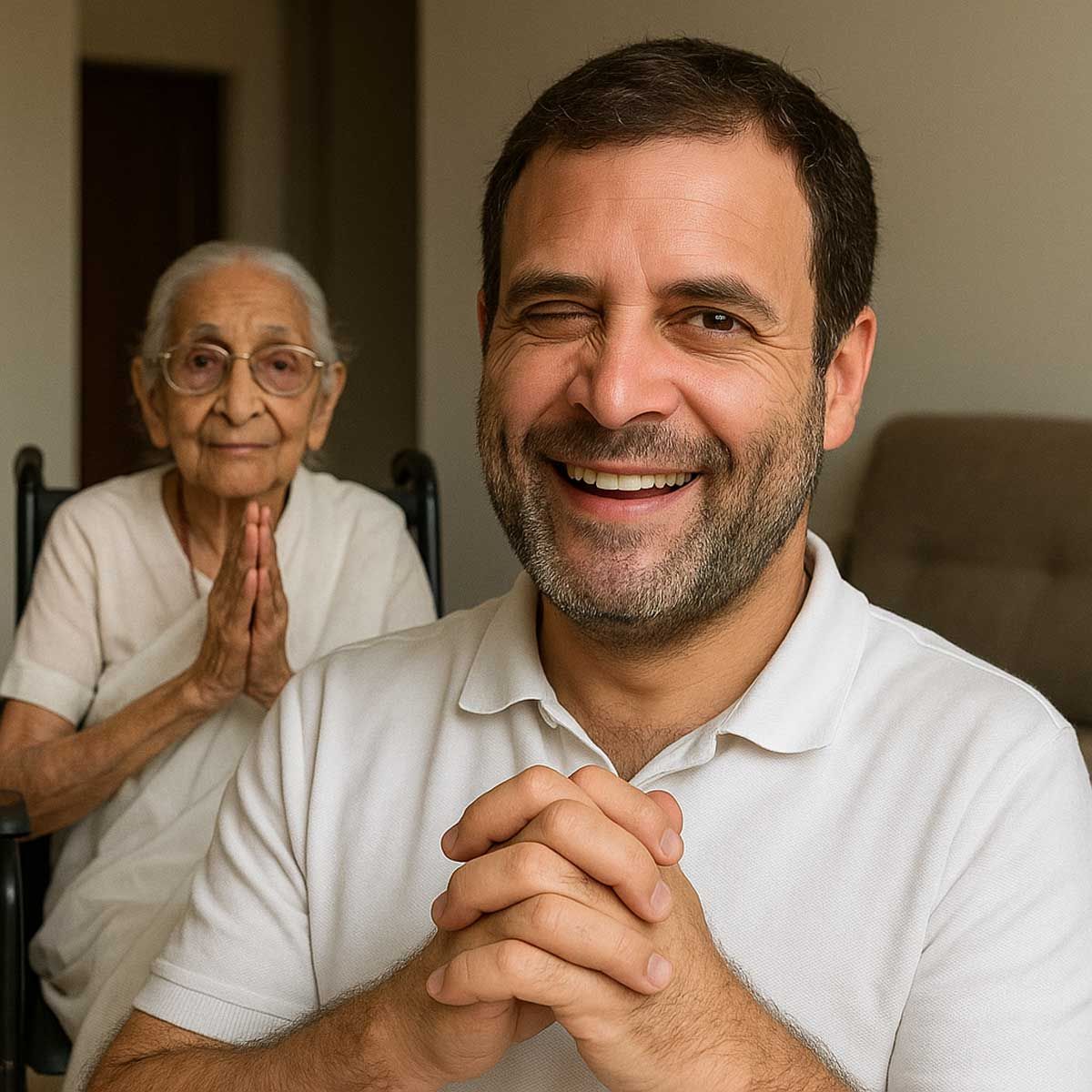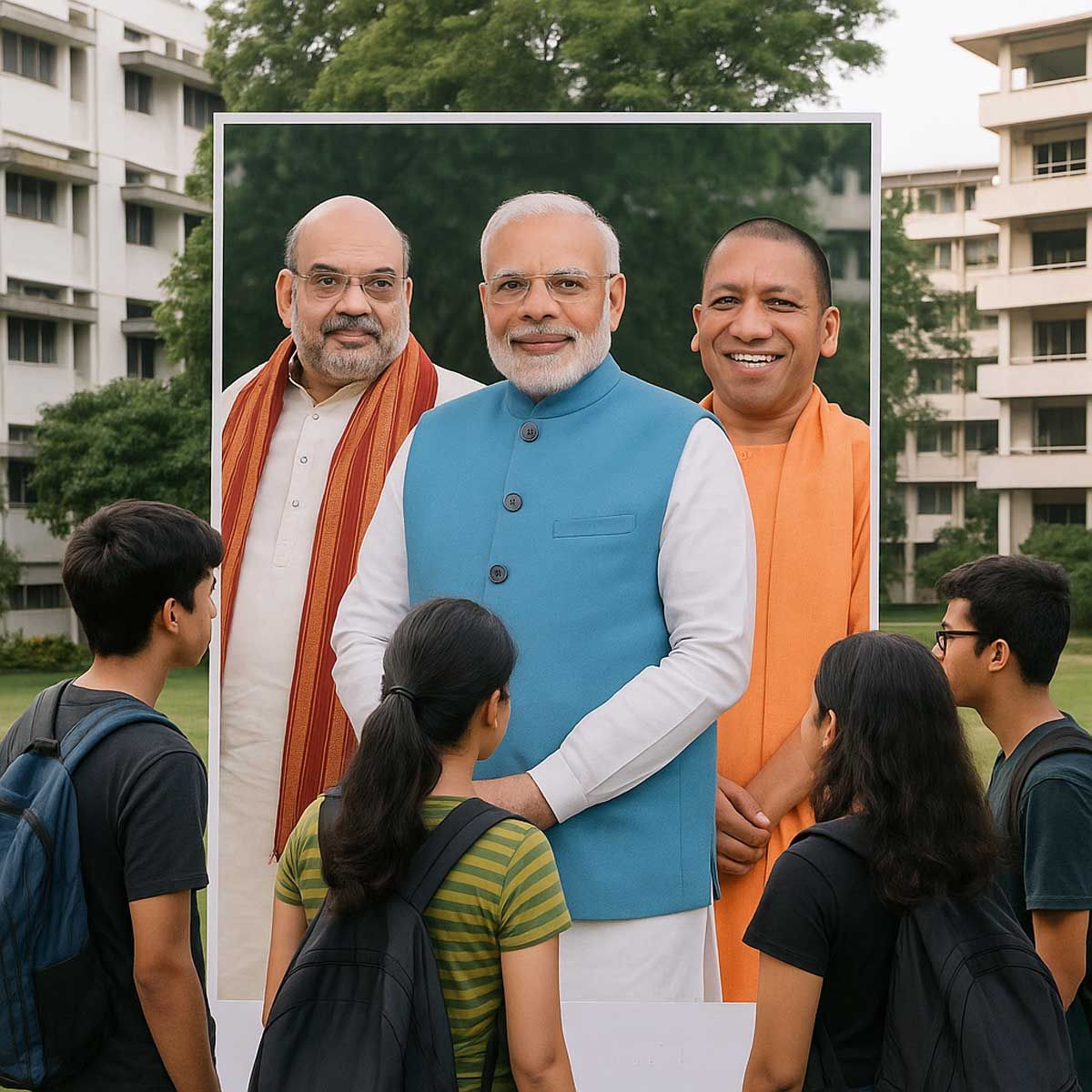More Coverage
Twitter Coverage
Satyaagrah
Written on
Satyaagrah
Written on
Satyaagrah
Written on
Satyaagrah
Written on
Satyaagrah
Written on
JOIN SATYAAGRAH SOCIAL MEDIA
Supreme Court steps in to decide whether Rohingyas are ‘refugees’ or ‘illegal immigrants’, raising critical concerns about whether the judiciary is once again overstepping its constitutional limits and assuming the role meant for the government
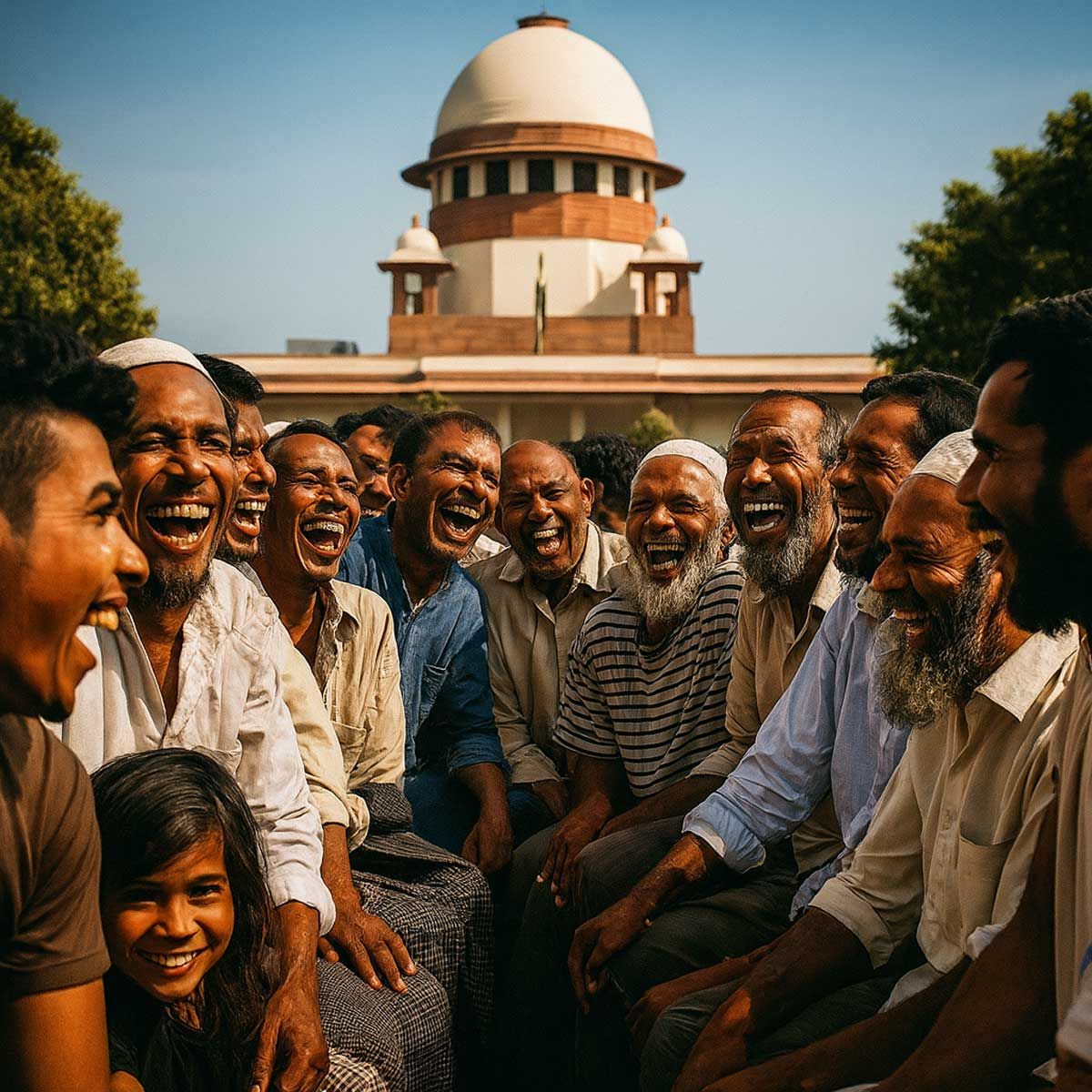
On Thursday, 31st July 2025, the Supreme Court of India made a significant announcement that could have long-term national implications. A three-judge bench comprising Justices Surya Kant, Dipankar Datta, and N Kotiswar Singh said that the Court would decide whether the Rohingyas living in India are to be regarded as refugees or illegal immigrants. The matter, which involves serious national and legal questions, will be heard over an extended three-day session.
|
The court has listed a number of key questions that it aims to address during the hearings. These are not just procedural queries—they go to the very heart of India's internal security, humanitarian commitments, and the boundaries of constitutional interpretation. The issues include:
1) Whether Rohingyas are entitled to be declared as refugees; if so, what protection emanates from the right they are entitled to?
2) If Rohingyas are illegal entrants, are the Government of India and the states obligated to deport them in accordance with the law?
3) Even if Rohingyas have been held to be illegal entrants, can they be detained indefinitely, or are they entitled to be released on bail subject to conditions?
4) Whether Rohingyas who are not detained but living in refugee camps have been provided basic amenities like sanitation, drinking water, education, etc. (in conformity with Article 21)?
This case is significant not only for its legal weight but because it reflects on whether the judiciary is overstepping its boundaries and intruding into policy-making, an area traditionally reserved for the executive and the legislature. While courts are tasked with ensuring laws are upheld, the process of defining who belongs in India, especially in the context of illegal immigration, remains primarily a political and administrative question.
|
India’s Efforts to Deport Rohingyas Amid Legal and Security Concerns
Over the past several years, the Indian government has intensified efforts to identify and deport Rohingyas who have entered the country illegally. These measures stem from deep-rooted concerns about national security, demographic shifts, and the strain on public resources.
Considering the threat these illegal Rohingyas pose to law and order, national security and demography, the Union government has been making efforts to identify and deport them.
However, these actions have sparked opposition. A number of foreign-funded NGOs and human rights organisations have approached the Supreme Court in an attempt to secure rights for the Rohingyas, comparable to those of Indian citizens, and to block their deportation. These groups often invoke international humanitarian standards, though India is not bound by such frameworks, as will be explained later.
In May 2025, during the hearing of the petitions against the deportation of illegal Rohingyas by the Indian government, the Supreme Court displayed remarkable judicial clarity by refusing to pander to the petitioners who wanted the court to address the matter with great urgency.
The government’s stance has remained firm: individuals who enter the country illegally, regardless of their background, cannot be allowed to stay and exploit Indian resources, especially when there are internal security implications.
Foreign-Funded NGOs Advocate for Illegal Rohingyas Despite National Security Threats
Some petitioners have continued pushing for a ‘humanitarian approach’ towards Rohingyas, even though several reports indicate their involvement in organised crimes like human trafficking. This population, which is not native to India, continues to lay claim to limited national resources, affecting Indian citizens who already struggle with overburdened systems.
The petitioners want the Indian government to adopt a ‘humanitarian’ approach towards the illegal Rohingyas, many of whom are found engaged in serious criminal activities like human trafficking.
Further complicating the issue is the role of appeasement politics. Many Rohingyas, with the support of certain political and activist groups, have managed to secure fake Aadhaar cards and other Indian identification documents, embedding themselves more deeply within the country. This makes detection and deportation harder and raises concerns about election integrity and misuse of welfare schemes.
These illegal immigrants lay claim to the resources of a country which already has a vast population to cater to.
As per the UNHCR data as of 31st December 2024, over 95,000 Rohingya Muslims are staying in India, including 22,500 refugees and asylum seekers considered stateless by the United Nations High Commissioner for Refugees.
This alarming number highlights the scale of illegal presence and the urgency with which the government must act to protect national interests.
India Has No Legal Obligation Under 1951 Refugee Convention
There is a common misconception that international conventions legally bind all countries. However, India is not a signatory to the 1951 Refugee Convention, which defines who qualifies as a refugee and the responsibilities of signatory states. As a result, India is under no legal obligation to accept or retain Rohingyas who entered its territory illegally.
The 1951 Refugee Convention, an international treaty which defines who refugees are and lays down obligations of its signatories regarding the refugees/asylum seekers, including not to return the refugees/asylum seekers to the country where they are persecuted. India is not a signatory to the 1951 convention, therefore, it is not bound by the provisions of the convention, which means that India is not bound to keep the illegal Rohingyas and can deport them.
Thus, the deportation of illegal Rohingyas is not a breach of any international treaty, and India retains full autonomy to protect its borders and internal security without interference from global bodies or foreign-funded activists.
Parliament, Not Judiciary, Has the Constitutional Power on Citizenship Issues
Although the Supreme Court has chosen to hear petitions on the legal status of Rohingyas, the Indian Constitution clearly assigns the power to decide on citizenship and immigration matters to the Parliament. Article 11 of the Constitution provides this authority explicitly.
Article 11 of the Constitution empowers the Parliament to regulate citizenship by framing laws relating to the acquisition and termination, and all other matters relating to citizenship.
The Union Ministry of Home Affairs is tasked with the execution of these laws, under the framework of the Indian Citizenship Act, 1955, which outlines the legal procedures for acquiring, renouncing, or being stripped of Indian citizenship. Rohingyas, entering India illegally, do not fall under this framework and have no legal claim to Indian citizenship.
Rohingyas, being illegal immigrants, are not governed by the Citizenship Act. The constitutional mandate of the Supreme Court is to interpret the law enacted by the legislature and to ensure that the law is applied fairly.
The Indian government has maintained that the Rohingyas are illegal immigrants with no right to enter or stay in the country and, therefore, the government is deporting them.
Given the potential risks to national security, Parliament—being accountable to the people—remains the most suitable institution to handle such sensitive issues. Allowing any illegal immigrant group to settle permanently may undermine the country’s sovereignty and disturb the social fabric.
Considering the fact that letting certain elements permanently reside in the country can have serious implications for the law and order as well as the people of the country, it makes sense that the decision is left with an institution like the Parliament, which has direct public accountability.
Now that the Supreme Court has taken upon itself to decide the matter relating to the status of illegal Rohingyas, it is expected that it is not only guided by dry logic and bare legal provisions, but also by the interests of the nation and its people.
As the hearings begin, the eyes of the nation are watching closely—hoping the judiciary will uphold the spirit of the Constitution while safeguarding the nation’s safety and identity.
 Support Us
Support Us
Satyagraha was born from the heart of our land, with an undying aim to unveil the true essence of Bharat. It seeks to illuminate the hidden tales of our valiant freedom fighters and the rich chronicles that haven't yet sung their complete melody in the mainstream.
While platforms like NDTV and 'The Wire' effortlessly garner funds under the banner of safeguarding democracy, we at Satyagraha walk a different path. Our strength and resonance come from you. In this journey to weave a stronger Bharat, every little contribution amplifies our voice. Let's come together, contribute as you can, and champion the true spirit of our nation.
 |  |  |
| ICICI Bank of Satyaagrah | Razorpay Bank of Satyaagrah | PayPal Bank of Satyaagrah - For International Payments |
If all above doesn't work, then try the LINK below:
Please share the article on other platforms
DISCLAIMER: The author is solely responsible for the views expressed in this article. The author carries the responsibility for citing and/or licensing of images utilized within the text. The website also frequently uses non-commercial images for representational purposes only in line with the article. We are not responsible for the authenticity of such images. If some images have a copyright issue, we request the person/entity to contact us at This email address is being protected from spambots. You need JavaScript enabled to view it. and we will take the necessary actions to resolve the issue.
Related Articles
- Twitter rewards an Islamist org, set to be banned by India, with a verified blue tick: Here is what PFI has done in the past
- Calcutta High Court's landmark judgment illuminates the secular essence of Durga Puja, reinforcing citizens' constitutional rights and India's unity in diversity, a celebration beyond religion, it embodies vibrant spirit of communal harmony & tradition
- Bengal: The Chilling Accounts Of Families Of Two BJP Workers Who Can Return Home Only If The Women Are ‘Given Up’ To Trinamool Gangsters
- "My Shelter Days are over, done, Because you, my master, took me home": Bombay HC imposes fine on citizens feeding strays in public places, "If these so-called friends are really interested in protection and welfare of strays, they must adopt those dogs"
- "गोलमाल है भाई सब…": Justice Karnan was jailed for naming 20 corrupt judges in a letter to PM, stripped of powers, silenced & declared unfit, while Justice Varma, caught with crores in cash, faced no FIR and reappointed as a judge in Allahabad High Court
- "Judge saheb ko bura laga kya… nahi, bas yunhi pooch riya hun": CJI Ramana slams Indian media amid the backlash judiciary is facing over controversial remarks and judgements, says ‘Media running agenda-driven debates and kangaroo courts’
- "किजिये मीटिंग मीटिंग": In response to the 'absolute failure of state machinery,' Calcutta High Court lambasts the West Bengal govt, threatening to close RG Kar Hospital & relocate patients, while ordering a CBI probe into the alarming vandalism incident
- "Nepotism will never give you success, but talent can": Delhi Court framed charges against DCW Chairperson, Swati Maliwal and 3 others for abusing their official positions and illegally appointing various acquaintances, says “Clearly Reflects Nepotism”
- ‘Realisation is same as jail’: Delhi High Court invoked Fyodor Dostoyevsky’s book 'Crime and Punishment' to reduce life sentences to 10 years for five Jaish-e-Mohammed terrorists—Bilal, Sajjad Khan, Muzaffar Bhat, Mehraj-ud-Din, and Ishfaq Bhatt
- Amit Shah announces transformative shifts in India's criminal laws, aiming to eradicate colonial legacies and emphasize justice over punishment, with tech integration & comprehensive consultations, Shah envisions an efficient, citizen-centric legal system
- "Freedom is whatever the Court says it is, pending revision": Kiren Rijiju in Rajya Sabha, "Until we create a new system for Appointment of Judges, issue of Judicial Vacancies will continue to arise which is a big reason for the huge pendency of cases"
- Islamist apologists spread fake propaganda to defame Jai Shri Ram. Here are the ‘liberals’ who are ‘ashamed’ over fake news
- "ATM is now Closed": Puneet Khurana, co-founder of For God's Cake & Woodbox Cafe, died by suicide, blaiming harassment by wife Manika Pahwa & in-laws over ₹10L demands, ₹2Cr property disputes, ₹70K/month legal fees, and domestic abuse
- “A mother’s arms are made of tenderness and children sleep soundly in them”: Bombay High Court grants bail to woman accused of throwing her newborn baby from top of building, she was upset with her husband, and suspected of him committing adultery
- "In the pursuit of justice, let's not forget the essence of the law": Section 498A IPC, enacted to protect married women from cruelty, is now being misused. This misuse disrupts familial harmony and undermines genuine cases, warns Jharkhand High Court

















